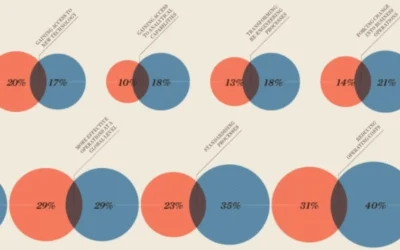FP&A
Don’t Persist with Excel: Knowing When to Move On
Excel is a powerful tool—no doubt about it. It’s often our go-to for managing data, creating reports, and analysing numbers. However, there comes a point where persisting with Excel becomes counterproductive. It’s a bit like the art of perseverance: knowing when to push through and when to let go.

Recognising Excel’s Limits
Excel is fantastic for small datasets and straightforward tasks, but as complexity grows, so do the risks. Spreadsheets become cumbersome, error-prone, and difficult to maintain. It’s like sticking with an outdated cricket player—loyal, but perhaps not the best choice for winning the game. Moving to more robust data management tools can save time, reduce errors, and provide more insights than a spreadsheet ever could.
When Stubborn Persistence Becomes a Problem
Many businesses persist with Excel simply because it’s familiar. This persistence can lead to issues like data loss, version control problems, and limited scalability. Much like persevering against obstacles, there’s a fine line between pushing Excel to its limits and recognising when it’s no longer serving you. Upgrading to specialised software can be a game-changer. (especially when it integrates with Excel like Empower does).
The Balance: Knowing When to Let Go of Excel
Excel is an excellent tool—until it isn’t. The wisdom lies in recognising when your data management needs have outgrown it. Just as in the art of perseverance, the greatest strength lies not in pushing Excel to do more than it’s designed for but in knowing when to pivot to more sophisticated solutions. Embrace change, and you’ll unlock greater efficiency and insights.
So, don’t persist with Excel when it’s time to evolve. Explore the alternatives, and find the right tools that allow your data to work for you, not against you.

Abhishek Singh
COO
Abhi joined Metapraxis in 2011 and now leads Operations from our US office. A passionate fan of the Indian cricket team, he also plays cricket at a high level when not watching the game.
FOLLOW US
Latest Posts
Why bars are better than bubbles
FP&A Why bars are better than bubbles The infographic in Raconteur includes a chart that aims to make quantitative comparisons through the use of circles of different areas.The infographic in the Raconteur supplement distributed with today’s Times includes a chart...
Excel vs. FP&A Platforms: Choosing the Right Vehicle for Your Financial Journey
FP&A Excel vs. FP&A Platforms: Choosing the Right Vehicle for Your Financial Journey Discover why FP&A platforms are like modern off-road vehicles, purpose-built for your data-driven financial expedition.Imagine you're embarking on a cross-country road...
Revolutionising FP&A with the Intelligence Processing System (IPS)
FP&A Revolutionising FP&A with the Intelligence Processing System (IPS) Experience the future of FP&A with the Intelligence Processing System (IPS). Revolutionize your FP&A, leaving behind Excel's limitations. Welcome an era of data-driven...




